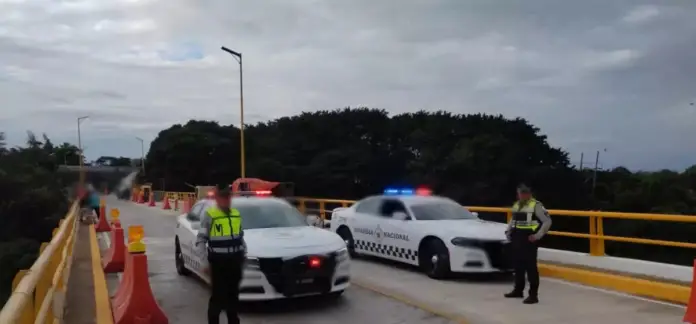Hidalgo led the incidence of highway robberies and assaults last year, a security problem that has become more sensitive in the face of investments and opportunities that are approaching for the state.
Mercado Libre made an investment in Hidalgo, the 2026 World Cup is just around the corner, as well as the consolidation of the Mexico-Pachuca passenger train. In this context, Andrés Velázquez, president of the Governing Board of the Congress of Hidalgo, urged greater coordination between neighboring states.
The problem of insecurity on the roads is not something that the Hidalgo government can solve in isolation, he says.
“In Hidalgo, the problem of highway robberies is focused mainly on the Northern Arch, which connects with states such as Puebla, Tlaxcala, Querétaro and the State of Mexico,” he explained in an interview.
In October, Mercado Libre opened a distribution center in Hidalgo with more than 100,000 square meters and that will seek to make 400,000 shipments daily. It is only one of three that the Argentine company will open in Villa de Tezontepec, with a total investment of 300 million dollars.
But this investment must be taken care of and the security problems on the road are real. In 2023, Hidalgo was the entity that concentrated the largest number of robberies on state highways and bridges, with 794, according to data from the National Census of State Public Security, from Inegi.
This represents more than half of the robberies and assaults on state highways in all of 2023. And, although at the national level the incidence has been declining and there is support from federal agencies, Andrés Velázquez advocates for greater coordination between neighboring states such as Puebla, Tlaxcala, Querétaro and Edomex.
From the perspective of freight transport, specifically, the perspective changes. According to AI27, a company specialized in preventive technology for transport and logistics, it estimates 15,937 thefts from freight transport in Mexico during 2024, with the states of Estado de México with 25%, Puebla with 21% and San Luis Potosí with 12% having the highest incidence of crime.
In this sense, Velázquez points out that the state government is working to make municipalities more participatory in security issues. “We have called on the municipalities to join the coordinated command, because security cannot be addressed in isolation,” he explains.
Another cause of the red spots of crime, including the crime of extortion of businesses, was attributed by the deputy to the cockroach effect from other states.
“This type of crime is often due to the cockroach effect: when crime is fought in one state, it migrates to another. That is why we work in a coordinated manner with the National Guard, the Army, the state police and the municipalities.”
A World Cup on the horizon
The Morena politician admits that the FIFA World Cup in 2026 and the reactivation of the Mexico-Pachuca passenger train represent opportunities for the state.
“The 2026 World Cup will not only benefit large cities such as Monterrey, Guadalajara and Mexico City, but also nearby states. Hidalgo is preparing to receive base camps for some World Cup teams,” he predicts.
Recently, FIFA confirmed the participation of Hidalgo as a venue for camps for some soccer teams that will participate in the competition.
The two venues will be the Hidalgo Stadium, known as Huracán and the den of the Tuzos del Pachuca, and the University of Soccer, of the same institution, located in Santiago Tlapacoya.
“This would mean an impressive economic spillover and a great opportunity to show the hospitality and tourist offer of the state,” emphasized the local deputy.
He also highlighted that part of this tourist offer will be the more than 40 hot springs resorts, 9 magical towns, local gastronomy such as barbecue and a rich archaeological heritage, such as Tula.
The Mexico-Pachuca train poses challenges
Recently, President Claudia Sheinbaum revealed that the work to make the Pachuca-Felipe Ángeles International Airport (AIFA) passenger train a reality, with an investment of 157,000 million pesos.
Although it will not be ready for the 2026 World Cup, it is expected to generate expectations to strengthen international tourism. But there are also challenges to overcome, from the point of view of the state government of Hidalgo.
“This project also poses important challenges, such as the regularization of land ownership in the ejido areas and the protection of the environment,” explained Andrés Velázquez.
He also noted that the Congress of Hidalgo is coordinating efforts to promote laws to protect natural resources and guarantee public services in the urban growth areas impacted by the train.
Source: politica.expansion






